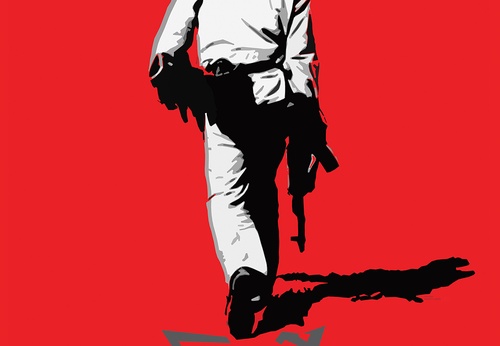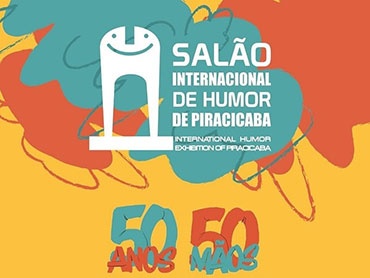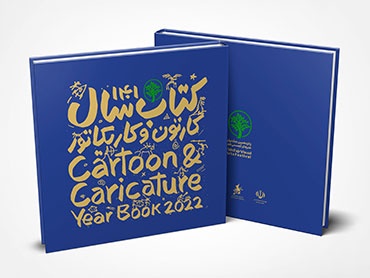Interview

Eduardo Costantini revolutionized Latin American art
Eduardo Costantini, the Argentine philanthropist who revolutionized Latin American art
Businessman Eduardo Constantini speaks during an interview with EFE, on June 5, 2024, at the Malba Museum in the City of Buenos Aires (Argentina). EFE/Juan Ignacio Roncoroni
Buenos Aires (EFE).- At 22 years old, Eduardo Costantini had three children, he worked, he studied Economics and when it rained, he went out on his bicycle to sell scarves. Today he is the founder of Malba, the museum that houses the best collection of Latin American art in the world, and the developer of Nordelta, a city on the outskirts of the Argentine capital that is considered a model of modern urbanism.
Constantini (Buenos Aires, 1946) has always been guided by a firm determination to move forward. Will, consistency and work based on ethics are their way of facing challenges.
“I started from scratch. He worked while studying. The days were long, but I had the purpose of moving forward,” this Argentine businessman and philanthropist, known both for his success in the business world and for his outstanding work as a patron, relates in an interview with EFE. Of art.
In 2001, Costantini founded the Museum of Latin American Art of Buenos Aires (Malba), a cultural institution dedicated to collecting, preserving and disseminating Latin American art from the beginning of the 20th century to the present.
“I started collecting when I was in my twenties. For more than a decade I bought works according to what I liked, but they did not have the artistic quality to be in a museum.”
But in 1980, he met Ricardo Estévez, a great art expert who taught him how to collect and who became his mentor.
Learning to collect art for Eduardo Costantini
Then he decided to focus on Latin American art and was gathering a high-quality collection with artists such as Frida Kahlo, Diego Rivera, Joaquín Torres-García, Antonio Berni, Xul Solar, Tarsila do Amaral, Roberto Matta and Wilfredo Lam.
“I saw a strategic piece of land in Buenos Aires and decided that it was better to put a museum than to build a building and do business,” he says.
The location of Malba in an exclusive area of the city, the quality of the permanent collection, the availability of financial resources and the professionalism of its team are the great strengths of the museum, highlights its founder.
“The most important challenge is financing. In Latin American culture there is a low perception of support for museums and generally there is no favorable tax legislation,” he laments.

Businessman Eduardo Constantini poses during an interview with EFE, on June 5, 2024, at the Malba Museum in the City of Buenos Aires (Argentina). EFE/Juan Ignacio Roncoroni
Businessman Eduardo Constantini poses during an interview with EFE, on June 5, 2024, at the Malba Museum in the City of Buenos Aires (Argentina). EFE/Juan Ignacio Roncoroni
In fact, Constantini is financing Malba Puertos out of his own pocket, an extension of the museum with a budget of ten million dollars in Puertos Escobar, a modern urbanization that he is building in the northeast of the province of Buenos Aires.
The Malba collection ranges from Latin American modernism onwards and contains selected works by masters of Latin American art. But the museum also develops educational programs and has areas specifically dedicated to cinema and literature.
“The selection is based on quality, the great masters of Latin American art and their best works, those that broke with tradition. Every time a superlative piece appears, I try to buy it,” he confesses.
Malba in the promotion of Latin American art
Costantini is proud of Malba's influence in promoting Latin American art.
“At first the visibility was much lower, but Latin American art has grown in presence and appreciation. Today, the great works of Latin American art dialogue on a par with those of the great international artists.”
In this globalized world, Constantini would like to see more value for native cultures and the importance of women in art, so that “there is equal opportunity and visibility, and the quality of the work prevails.”
For this prominent philanthropist, museums are a welcoming place, “a natural refuge where cultural values can be exalted through art.”

Businessman Eduardo Constantini speaks during an interview with EFE, on June 5, 2024, at the Malba Museum in the City of Buenos Aires (Argentina). EFE/Juan Ignacio Roncoroni
Convinced that human beings have a social responsibility, Eduardo Costantini donated his private collection to Malba the same year it was founded.
“Museums create community, educate and enrich by interacting with the public. It is a way to enjoy the collection in a more meaningful way,” he confesses.
Costantini thinks that technology should be used to improve the purposes of institutions and is convinced that artificial intelligence applied to art will never replace the human being.
“There are human imprints that artificial intelligence cannot replicate. I don't think we will lose our identity as people," says Costantini, for whom life is "a continuous construction" and success is "living according to values."
“The goal is to always grow, be active and enthusiastic,” he concludes.

- July 02, 2025
Israel Will Surely Be Destroyed






- July 01, 2025
Gallery Of Sculpture By Leandro Mompié - Cuba


- July 01, 2025
The ruins of Gaza

- June 05, 2025
When the Wall Breathes: Interview with …

- May 20, 2025
Imaginary Interview with David Alfaro S…

- May 11, 2025
Interview with Massoud Shojai Tabatabai

- March 25, 2025
Imaginary Interview with Sergio Aragonés

- March 24, 2025
Imaginary Interview with Ángel Boligán

- March 07, 2025
Imaginary Interview with Cau Gomez – Th…

- February 15, 2025
Imaginary Interview with Thomas Fluharty

- December 06, 2024
Interview with Pablo Picasso about "Dov…

- November 01, 2024
Imaginari Interview with Master Zirlado

- October 21, 2024
An Imaginary Interview with Frida Kahlo

- October 10, 2024
Interview with Diego Rivera: A Master o…

- September 14, 2024
Governments are afraid of the visual ar…

- August 23, 2024
A Hypothetical Interview with Claude Mo…

- July 27, 2024
An Imaginary Interview with Auguste Rod…

- June 20, 2024
Art and the deepest part of the human s…

- June 16, 2024
A Candid Conversation with Fernando Bot…

- June 12, 2024
Eduardo Costantini revolutionized Latin…

- May 18, 2024
An Interview with Michelangelo

- April 26, 2024
An Imaginary Interview with Caravaggio …

- April 18, 2024
An Imaginary Interview with Paul Cezanne

- March 07, 2024
An imaginary interview with Van Gogh ab…

- May 11, 2025
Interview with Massoud Shojai Tabatabai

- February 11, 2024
imaginary interview with van gogh,befor…

- February 02, 2024
Interview with a Ghost: Banksy Speaks

- October 21, 2024
An Imaginary Interview with Frida Kahlo

- May 20, 2025
Imaginary Interview with David Alfaro S…

- February 15, 2024
imaginary interview with Honoré Daumier

- February 01, 2024
interview with Ralph Steadman , great a…

- March 24, 2025
Imaginary Interview with Ángel Boligán

- August 23, 2024
A Hypothetical Interview with Claude Mo…

- July 31, 2023
Interview with Professor John A. Lent

- February 08, 2024
interview with pablo picasso, imaginary

- February 15, 2025
Imaginary Interview with Thomas Fluharty

- March 31, 2024
An Interview with Edgar Degas: Capturin…

- February 14, 2024
imaginary interview with Leonardo da Vi…

- December 06, 2024
Interview with Pablo Picasso about "Dov…

- June 05, 2025
When the Wall Breathes: Interview with …

- April 18, 2024
An Imaginary Interview with Paul Cezanne

- March 08, 2024
An imaginary interview with Van Gogh an…

- March 07, 2025
Imaginary Interview with Cau Gomez – Th…

- February 08, 2024
interview with pablo picasso, imaginary

- October 21, 2024
An Imaginary Interview with Frida Kahlo

- February 10, 2024
interview with mordillo ,master of smil…

- February 14, 2024
imaginary interview with Leonardo da Vi…

- March 07, 2024
An imaginary interview with Van Gogh ab…

- March 02, 2024
An imaginary interview with Salvador Da…

- February 11, 2024
imaginary interview with van gogh,befor…

- July 30, 2023
“Cartoons give us another reality of cu…

- May 18, 2024
An Interview with Michelangelo

- February 02, 2024
Interview with a Ghost: Banksy Speaks

- February 01, 2024
interview with Ralph Steadman , great a…

- October 10, 2024
Interview with Diego Rivera: A Master o…

- June 12, 2024
Eduardo Costantini revolutionized Latin…

- December 06, 2024
Interview with Pablo Picasso about "Dov…

- July 31, 2023
Interview with Professor John A. Lent

- July 30, 2023
An Interview with Italian Artist Cristi…

- June 16, 2024
A Candid Conversation with Fernando Bot…

- March 08, 2024
An imaginary interview with Van Gogh an…

- July 30, 2023
“My name is Paulo, but you can call me …

- August 23, 2024


